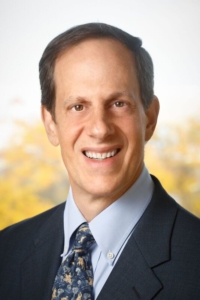
Over the last 30 years, Harvard Business School senior fellow Mark Maletz has spent quite a bit time observing executive teams in action — and you can always tell who the HR guy is, he says.
Often, Maletz says, C-suite executives work together on a business strategy, and later the chief human resources officer is tasked with creating a “people” strategy that fits it. Because HR tends not to be involved from the onset, Maletz thinks that both sides of the strategy won’t turn out as good as they might.
Ideally, he says, people strategy and business strategy are fully integrated, not independent and consecutive. Getting there, he says, requires HR executives to have a better understanding of business strategy — and that’s just what HBS Executive Education will offer beginning this year: “The HR-Executive Suite Connection,” a program to train up HR executives and get them to “adopt much more of a business perspective.”
He adds: “That way, they can be part of executive conversations, and it won’t be so easy to say: ‘That’s the HR guy.’”
PAST PARTICIPANTS WANTED TO BE BETTER LEADERS, NOT JUST BETTER HR LEADERS

HBS has had executive education programs for HR professionals for two decades, but Maletz, faculty chair of the new program, says most of those programs focused on HR-specific topics like performance management and talent management. Participant feedback indicated that while the programs were useful, participants wanted to be better business leaders, not just better HR leaders.
“So we decided to run a program for HR people, where it’s entirely business-focused,” Maletz says. “Every member of the executive team should have a broad enterprise mindset — so whether they represent sales or marketing or HR, they can really discuss the whole business.”
The program, running from July 16-19 this year, will examine the role of human resources executives in designing business strategy. Maletz says the target participants are CHROs who already have a seat at the executive table and who want to take that position to the next level; or the designated successor to the CHRO, so they can prepare for their future position.
CASE STUDY CURRICULUM
Everything in the program’s curriculum will begin with an HR perspective, Maletz says, but quickly move on to a purely business discussion. The HR perspective will be an entry point to help participants figure out how they would enter the discussion at the executive table.
There are three main themes in the course: strategy formulation, building an operating system that delivers on that strategy, and service excellence. Maletz says one case study in which HR played a large role in business strategy is a bank that aimed to differentiate itself by having the best customer service. “In financial services, if you think about your own experiences with banks, most customers will report that they assume they’re going to get lousy service,” Maletz says. “So if you assume the service will be poor, you choose the bank that will give you the best pricing feature, that tries to compensate for lousy customer service.”
The bank in the case study decided to have the best customer service by staying open until midnight and on weekends, and doing their best to convince customers. While going through the case study, Maletz points out a few questions that HR leaders might tackle.
“The role models for bank tellers are usually not very good, so how would I recruit hundreds of thousands of frontline bank employees to get this kind of culture?” he says. “When we get past that entry point, there’s a whole set of business strategy questions. If you want that level of service, how do you pay for it? How do you determine what is important to the customers? And how do you make the business system work — will you forfeit mortgages, since most banks are at their worst when helping customers get mortgages? And that’s what this bank decided to do.”
AIDED BY RETIRED BUSINESS LEADERS
To enrich discussions about case studies, Maletz says, participants in the new program will read the cases ahead of time and discuss them the night before in groups of about eight. To help them along, the program has lined up a group of retired business leaders to serve as mentors.
“Most discussion groups will have a retired executive with them, and they’ll approach it from a business perspective, rather than an HR perspective. We hope that by the end of the evening, the HR people will be adopting some of that business perspective,” Maletz says.
With time, he hopes that interest in the program continues to grow among HR executives, and also among retired business leaders. “This year we reached out through the HBS network for retired executives,” he says. “And I think over time this will be the kind of program retired executives see as a way to give back.”
DON’T MISS HOW BERNIE MADOFF IS TEACHING EMBAs TO FIGHT FRAUD or WHY GEORGETOWN McDONOUGH HAS A DEAN OF INNOVATION





Questions about this article? Email us or leave a comment below.